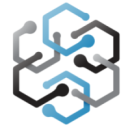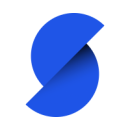It takes a lot of work to make scaling look easy. As company goals shift and businesses go from gaining traction to steady growth, a whole host of new challenges rear their head.
A lack of processes may not prevent a company from finding a foothold in the market. However, their importance comes into focus as teams find themselves taking on more work. A few founders can do a lot on their own to drive a company forward, but eventually the need for leaders with specific skills and expertise becomes apparent as high-level strategic decisions begin to carry more weight. Even the day to day can be a challenge, with teams often asked to pivot and solve problems they couldn’t predict or plan for.
If scaling is so difficult, then how do some companies make it look so easy? That’s the question we posed to leaders at seven Los Angeles tech companies, all of which are currently hiring and offer the ability to join a growing team without suffering through growing pains.

Just because there’s no one-size-fits-all solution for making scaling easier doesn’t mean there aren’t existing strategies companies can leverage to smooth out the process. One of those strategies is the “Entrepreneurial Operating System,” or EOS, a set of concepts and tools designed to help entrepreneurs sustainably grow their businesses by organizing and prioritizing company goals.
Nima Hakimi, CEO and co-founder of cloud-based call center software provider Convoso, explained how implementing EOS provided the structure the company needed to scale.
What’s the biggest challenge your team faced as Convoso scaled? And how did you overcome it?
Inadequate structure and organization, especially as we started specializing departments and roles. In the beginning, our CPO and co-founder Bobby and I wore multiple hats. Once we started adding to the leadership team we were able to delegate responsibilities, but at the same time we needed more structure to get projects and tasks completed. We introduced the team to the Entrepreneurial Operating System to clear up some of the deficiencies, aligning teams around short-, mid- and long-term goals and assigning measurable metrics. Besides annual goals, we have quarterly goals and weekly touch points, which we call “Level 10 meetings,” where management meets to review goals.
Adopting this system allowed us to scale as the company grew at all levels and in all directions. And while it’s still not perfect, it helped put needed structure in place. Another big focus was hiring the right people who integrated into and fit well with our culture. Having like-minded employees who identified with our core values made a big difference.
Adopting the entrepreneurial operating system allowed us to scale as the company grew at all levels and in all directions.”
What’s been your “secret weapon” when it comes to scaling successfully?
We’re in a competitive industry, offering a software solution that’s quite complex, and it’s hard for people who join without industry knowledge. The product we’re selling has a lot of capabilities, and new hires need to learn about our customers, the product and the market. We needed to standardize the way everyone learns about the product and the industry.
We developed our “secret weapon” a few years ago. We made industry training videos — I like to call them “Convoso Lingo” — so employees understand the common terminology and the language we and our customers speak. This is impactful because employees at all levels have a common, baseline industry knowledge and understanding of what we do as a company, allowing them to make an impact on our company and customers.
Looking ahead, what will growth look like for your team?
We first launched our software in 2006, and since then we’ve focused on building a strong, financially stable company. From that foundation we began a steady growth trajectory in 2020 that continues today. Our teams around the globe account for more than 160 employees, 100 of whom are in the U.S.
Looking ahead, we’re growing in all departments. As a product-based technology company, our greatest needs are for product and engineering talent. On the product side, we’re continuing to hire product managers to get more product out. This means we need to hire more senior engineers and software architects to further scale with our customers. We’re also growing our DevOps team to maintain uptime and quality of service.
Asking for help can be incredibly hard for founders who can remember a time when their grit and determination was the only thing that pushed the company forward. One person can only do so much, though, and eventually founders need someone to lean on. Fred Dijols, CEO and co-founder of the online pet pharmacy Mixlab, said identifying needs for skilled leaders with specific expertise has enabled his company to scale successfully and sustainably.
What’s the biggest challenge your team faced as Mixlab scaled? And how did you overcome it?
Like many businesses with physical operations, getting through Covid-19 was a huge challenge. As a pharmacy that makes and delivers life-saving pet medications, remaining open was critical. We had to navigate new Covid-19 spikes and breakouts while scaling and growing our customer base and rapidly expanding our headcount. Our extremely resilient team worked tirelessly to make and deliver medications, and we are proud to say that we never had to shut down, even for a single day.
Our team’s health and safety has always been our top priority, and so we put in policies to ensure they were protected. Beyond enhanced cleaning procedures and masking up in the labs, we covered employee transportation costs and hotel rooms when needed. Our people team worked hard to make sure our company culture and values remained strong while recruitment showed incredible perseverance and consistently met our demanding headcount needs.
What’s been your “secret weapon” when it comes to scaling successfully?
Putting the right leadership in place is what truly allows a startup to scale. There comes a point in the founder journey where there’s just too much to do and founders don’t always have the specific domain expertise to install scalable processes. Things move much faster when leaders with prior knowledge and domain expertise come in.
Over the past couple of years we’ve actively recruited leaders for roles across the company and have made tremendously impactful hires in sales, marketing, operations, finance and people. For example, we recently hired George Koveos as our COO, and within a few days he was able to implement massive delivery service improvements thanks to his deep experience and relationships. It’s also important to align with everyone at the organization and we are continuing to develop our mid-level leadership team.
Putting the right leadership in place is what truly allows a startup to scale.”
Looking ahead, what will growth look like for your team?
We’re growing across the board at all levels, from our business to pharmacy teams, with sales, operations and technology currently seeing the most growth. We look for mission-driven people who want to make a difference in the world and help pets get the care they deserve. We stand by our core values of “do what’s right, “make it happen” and “mix with love.”

Prior to the switch to remote work and hybrid setups, a lack of office space presented a real challenge to scaling. While office space is available in abundance now, companies with return to work plans are still facing issues around where to seat people thanks to global supply chain challenges. This can make the return to work less exciting as new hires find themselves leaving their “personal” home office behind for cramped quarters across town.
Sona Mikayelyan, HR administrator and corporate development at PaymentCloud, said the fintech company has experienced just this issue. According to her, effective communication has ensured employees are focused less on who sits where and more on what’s best for the team.
What’s the biggest challenge your team faced as Payment Cloud scaled? And how did you overcome it?
The issue we’ve struggled with the most is our office space. Although our office is large and we’ve only been in it for two years, we’re already starting to run out of room for new employees. When we managed to come up with a workable solution, global supply chain issues made it incredibly difficult to source furniture. We had several members of our marketing team working remotely for months while we waited for desks to arrive.
That’s not to say we haven’t had some of the typical struggles you’d expect at a growing company, but all of those other challenges can be addressed from within. Our team is highly adaptable and we’re great at finding and removing roadblocks within our own policies and procedures so that we can move forward more efficiently. Issues surrounding physical space and the supply chain are largely beyond our control.
What’s been your “secret weapon” when it comes to scaling successfully?
As a rapidly scaling organization, the most powerful weapon to have in your arsenal is effective communication. Without the ability to collaborate, compromise, inform and listen, scaling is much harder than it needs to be. Within our organization, each team relies on each other and we recognize that although a change might be inconvenient for one team, it may dramatically improve things for another team, benefitting us all in the end.
We recently created space for two members of our marketing team so they could finally come back to the office. However, on their first day back we discovered we needed that space for our sales team. Both teams took the challenge in stride because they understood what was at stake and worked together to find a solution. Effective communication stopped the problem from escalating and enabled us to work together rather than just working alongside one another.
As a rapidly scaling organization, the most powerful weapon to have in your arsenal is effective communication.”
Looking ahead, what will growth look like for your team?
We’re thrilled that PaymentCloud will likely continue to grow throughout the foreseeable future. We expect to roll out some truly positive changes, including generous enhancements to our benefits package. I was brought on board as our company’s first human resources administrator a year ago, and since then I’ve been working closely with management to fine-tune and formalize our onboarding processes as well as our policies and procedures. My goal has always been to make scaling as seamless as possible for us, and we are well on our way to making that a reality.

Processes, or the lack thereof, often take center stage when a company begins rapidly scaling. As Caitlin Sharpe, associate director talent acquisition at fast-growing e-commerce company GOAT Group notes, instituting new processes isn’t an exercise in identifying and plugging holes. Sharpe recommends an intentional approach that carefully considers a team’s goals and how a potential process will help achieve — and not distract from — them.
What’s the biggest challenge your team faced as GOAT scaled? And how did you overcome it?
The biggest challenge is staying true to the qualities that made us successful while incorporating new processes to support a larger organization. Our entrepreneurial spirit, ability to make quick decisions and fearlessness in questioning limits shaped our early working style. As we grow, we continue to create a structure that enables us to move with the same agility.
While exciting, it can be painful to incorporate new processes if you’re not intentional in your approach. It requires asking the right questions like, “Will this new development help teams stay focused and remove roadblocks, or will it become the focus instead?” In many cases we adopt a lightweight process that is continually reexamined as team needs change. By staying flexible and not overcommitting to processes for process sake, we’ve been able to navigate new challenges without the weight of invasive operations.
The biggest challenge is staying true to the qualities that made us successful while incorporating new processes.”
What’s been your “secret weapon” when it comes to scaling successfully?
A low-ego environment. Leadership has been focused on building a successful company that pays tribute to the culture and community that was here before us while still pushing the envelope. Leading with humility, authenticity and passion will always be central to how we operate, and these qualities guide our hiring. Fresh eyes, past experiences and unique perspectives are welcomed instead of challenged, and in turn new hires feel they are an authentic, respected part of the team early on.
Additionally, we stay connected to our roots. Our CEO, Eddy Lu, meets with every new hire cohort to tell the story of GOAT Group’s founding, including our early failures, pivots and the resilience that led us here.
Looking ahead, what will growth look like for your team?
GOAT Group is hiring across all of our teams in the United States as well as launching in new markets across the APAC and EMEA regions. Growth doesn’t happen at all costs here, though. It is intentional and thoughtful, and we bring in good people with a passion for their craft.
One of the reasons I love recruiting for GOAT Group is being able to highlight the diversity of roles within our company. We operate three distinct brands: GOAT, Flight Club and alias. Within those brands there is a rich opportunity to build and create, whether you are a software developer or a visual designer. We are a multi-faceted company that seamlessly bridges the worlds of technology, physical retail experiences and global logistics to create a beautiful and sophisticated experience for all of our members. With our flexible work arrangements we can hire the best people regardless of their location.
The thing about launching a company in stealth mode is that if all goes according to plan, no one will see you coming. This is great from a business perspective as it gives companies a jump on the competition. But it can be a nightmare for recruiters who have little collateral to explain their company and its mission.
Security software company HiveWatch faced this exact challenge, and CEO and founder Ryan Schonfeld shared how a marketing pivot helped solve it.
What’s the biggest challenge your team faced as HiveWatch scaled? And how did you overcome it?
We were ready to hit the ground running and then we encountered our first roadblock: brand awareness. No one knew HiveWatch despite us having been around for the better part of a year. We had been operating in stealth mode, didn’t have a built-out website and there was very little news about us. This problem actually wasn’t specific to sales but recruiting.
We realized getting people outside of the security industry excited about the company and its mission was going to be an uphill battle to start. We pivoted our marketing strategy so we weren’t spending time and resources on finding prospects to sell to but employees to recruit. Once we had that part down, we wanted to make sure we were filling the company with people who believed in our mission and shared our values. We spent a lot of time as a team workshopping our values and documenting them. We developed an interview process that would not only identify the right talent but the right people, too.
We pivoted our marketing strategy so we weren’t spending time and resources on finding prospects to sell to but employees to recruit.”
What’s been your “secret weapon” when it comes to scaling successfully?
Many of our first employees had prior startup experience, and they would often talk about how the culture at their previous companies lost that special feeling as a result of hyper-scaling. I’m not talking about free snacks, either. We’re incredibly conscious about not repeating the mistakes we’ve seen made at other companies. With all of that being said, our secret weapon is making HiveWatch a great place to work.
It seems so obvious and almost cliché, but it’s really been working. Our employees are happy because we are upfront from the beginning about the type of organization they’re joining and make sure our mission resonates with them before making an offer. This has ensured that they are genuinely excited about making a product that protects people and has a real impact on people’s lives. It’s making it easier to scale because of the dedication people have to our mission and to HiveWatch.
Looking ahead, what will growth look like for your team?
Now that our product is launched and we’re lucky enough to have a lot of demand, we’re looking to grow our customer success and experience team. We’re doing this faster than a company at our stage typically would because we’re putting a huge emphasis on the customer experience. To us that includes implementation, 24/7 support and continuing education, not only for our product but eventually for industry best practices. Ideally all of the time and attention we give to our customers will not only keep them happy but also attract new customers, helping HiveWatch grow organically.
And of course, like all tech companies, we’re growing our engineering and product teams. We’re constantly iterating on our product and have a ton of open positions.

A strong company culture can make scaling easier, but it’s about more than just pointing to words on a wall and assuming employees get the message. At insurtech company Sure, Jico Baligod, VP of engineering, told Built In that culture becomes tangible during retrospectives.
Baligod said retros give employees the ability to share wins and speak candidly about struggles and noted they were invaluable in enabling the company’s transition to a cross-functional pod team structure as it scaled.
What’s the biggest challenge your team faced as Sure scaled? And how did you overcome it?
When we were a smaller company onboarding a few new hires simultaneously, we could spend more time guiding them through typical questions like: What are our processes and tools? How do we make decisions? How can I make an impact? Now we’re onboarding 10 times as many people and don’t have the luxury of spending focused one-on-one time with new hires. It’s become challenging to drive alignment around how we do things and most importantly “why” we do them. In addition, this wave of new hires brought a flood of questions and different ideas that have led to confusion.
To smooth out our growing pains, we identified and filled gaps in our knowledge base — undocumented processes, guardrails, responsibilities and how decisions are made. We also tried to make ourselves available for “context meetings,” where senior staff take new hires through the evolution of a process, adoption of a tool, a client relationship or a project history. The ultimate goal was to align everyone so that they felt empowered to make decisions and contribute confidently.
What’s been your “secret weapon” when it comes to scaling successfully?
We put a strong emphasis on hiring people who align with our values. We remain determined and adaptable, welcoming ambiguity and uncertainty and persevering through challenges. Combined with the value of collaboration, our culture has become our secret weapon to scaling successfully. We all acknowledge that this growth phase won’t be easy. We’ll learn from our mistakes and move forward.
Retrospective meetings are where our culture shines. For example, we recently reorganized our teams into cross-functional pods and held weekly retros to analyze the transition. In these meetings we celebrated wins but were also honest about what wasn’t working. We discussed where people were misaligned, confused or frustrated and what actions we could take to address these issues.
Our culture has become our secret weapon to scaling successfully.”
Looking ahead, what will growth look like for your team?
Sure is still very much in a hyper-growth phase, and our continued focus is on crafting a good onboarding experience for new hires. We want to ensure they have the support they need and align with our vision, mission and practices so that they’re set up for success. We also ask for feedback from every new hire to iterate and improve the experience as we grow.
We’ll need to continue to scale our product and engineering teams rapidly to support our internal initiatives and the growth of our enterprise products and services. In addition, we’re working on opening up opportunities for internships and junior roles. The growth of our teams naturally brings along opportunities for leadership positions, too. We prefer to promote from within as much as possible, so it will be exciting to see people step into management roles and grow themselves and their teams!
Scaling a team and experimenting with branded content for a brand new social media platform simultaneously is admittedly something few tech leaders will ever be asked to do. Take TikTok out of the equation, though, and the challenge Alex Rehberg faced in growing the creative team at social media marketing and publishing company First Media is quite relatable. Here’s Rehberg’s advice for how to grow a team and adopt a new technology all at the same time.
What’s the biggest challenge your team faced as the company scaled? And how did you overcome it?’
When I joined First Media in 2020 to grow the creative team we were about 12 people, and since then we’ve grown to over 50 people on five teams. As we were growing, new platforms like TikTok emerged as well as unique tracking challenges, including the rollout of iOS 14. Navigating these changes alongside a team with varying tenures presented our biggest opportunity to really invest in new tools to track and visualize data, enhance workflows and find new ways to produce high-converting short-form content.
What’s been your “secret weapon” when it comes to scaling successfully?
Our people. Sometimes our division looks at itself as the subsidiary of a larger media company because we have so much support from the top to try and test different things. Likewise, driving our team’s growth is a through-line of excitement and collaboration across the team that I’ve not personally experienced anywhere else. We have a “if you win, we all win” mentality, which fosters a fluid, collaborative framework across roles and teams. Everyone’s willing to grab an extra shot for someone else’s project on set and is available to work shop ideas, which consistently levels up our team and reinforces our foundation as we expand.
We have a ‘if you win, we all win’ mentality, which fosters a fluid, collaborative framework across roles and teams.”
Looking ahead, what will growth look like for your team?
Our biggest priority is to diversify our current clients’ portfolios across new and exciting platforms. We invested in figuring out what performs well on TikTok for our direct-to-consumer clients by creating an entire team just for new platforms. At the time, very few advertisers were even dipping their feet into the water, aside Fortune 50 companies looking for brand awareness. Since our “emerging platforms team” started eight months ago, we’ve not only cracked the code but TikTok is now the biggest driver of new customer acquisition for several of our clients. Emerging platforms is currently expanding to Snap and YouTube and we anticipate this team doubling in the next six months.


















